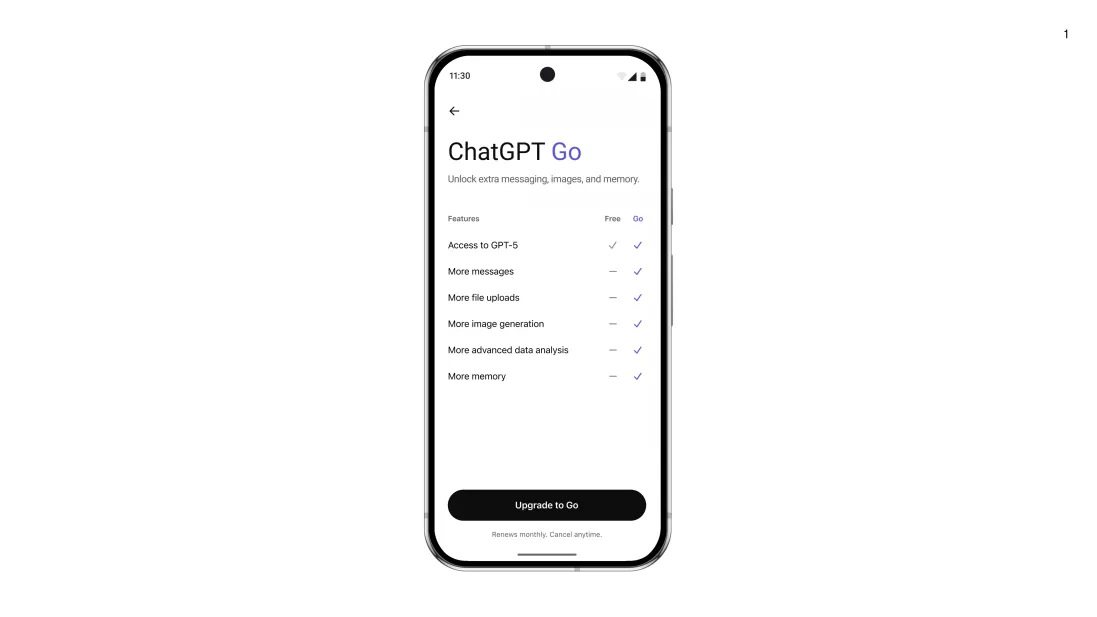OpenAI is broadening access to its budget-friendly ChatGPT Go plan, priced under $5, by rolling it out to 16 new countries across Asia. The expansion includes Afghanistan, Bangladesh, Bhutan, Brunei Darussalam, Cambodia, Laos, Malaysia, Maldives, Myanmar, Nepal, Pakistan, the Philippines, Sri Lanka, Thailand, East Timor, and Vietnam.
In markets such as Malaysia, Thailand, Vietnam, the Philippines, and Pakistan, users can now pay in local currencies. Others will be charged about $5 in USD, with final prices varying depending on regional tax rates.
The ChatGPT Go plan offers higher daily limits for messaging, image generation, and uploads, along with double the memory of the free plan for more personalized AI responses. OpenAI reports that Southeast Asia’s weekly active user base has quadrupled since the introduction of the Go plan.
Initially launched in India (August) and Indonesia (September), the plan has already doubled OpenAI’s paid subscribers in India. The company’s strategy places it in direct competition with Google, which recently expanded its Google AI Plus plan, priced similarly and offering tools like Gemini 2.5 Pro, Flow, Whisk, and Veo 3 Fast, to over 40 countries.
The expansion aligns with OpenAI’s broader growth trajectory. At DevDay 2025 in San Francisco, CEO Sam Altman announced that ChatGPT now boasts 800 million weekly active users, up from 700 million in August. OpenAI also unveiled a new platform model that turns ChatGPT into an AI app ecosystem, featuring integrations with Spotify, Zillow, and Coursera.
Despite a staggering $7.8 billion operating loss in the first half of 2025, OpenAI’s aggressive push into emerging Asian markets signals a focus on profitability through affordable subscriptions.
With rivals like Google racing to capture the same user base, Asia is quickly becoming the next frontier in the global AI accessibility race.






